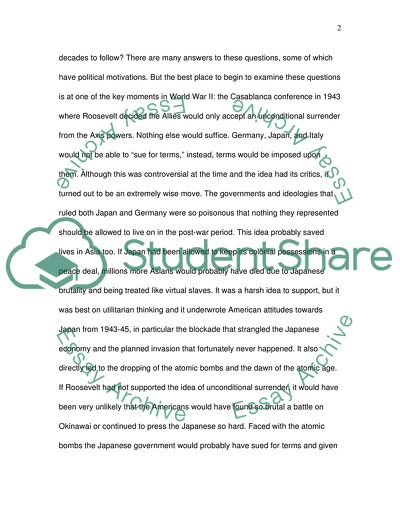Cite this document
(The Pacific War - between Japan and the United States Essay, n.d.)
The Pacific War - between Japan and the United States Essay. Retrieved from https://studentshare.org/history/1720415-essay-3
The Pacific War - between Japan and the United States Essay. Retrieved from https://studentshare.org/history/1720415-essay-3
(The Pacific War - Between Japan and the United States Essay)
The Pacific War - Between Japan and the United States Essay. https://studentshare.org/history/1720415-essay-3.
The Pacific War - Between Japan and the United States Essay. https://studentshare.org/history/1720415-essay-3.
“The Pacific War - Between Japan and the United States Essay”, n.d. https://studentshare.org/history/1720415-essay-3.


